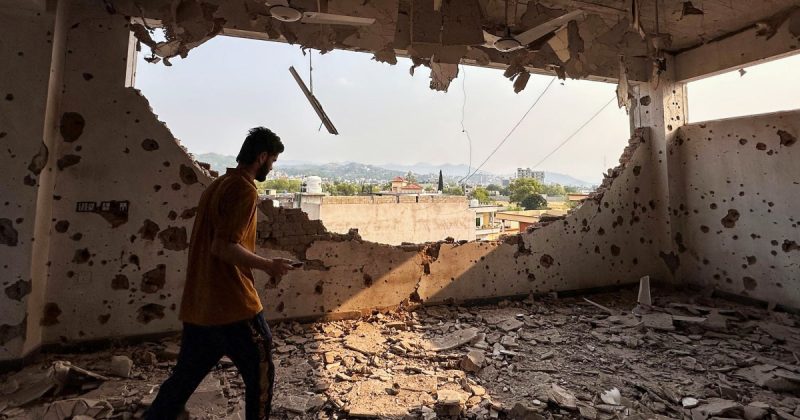
Recent deadly cross-border strikes between India and Pakistan have ignited fears of a full-blown war between the two nuclear-armed nations. The situation is incredibly tense, with both sides vowing retaliation and escalating the conflict. At least 31 people were killed in Pakistan following Indian airstrikes, while India reports significant civilian casualties as well. The exchange of fire continues, raising serious concerns about regional stability.
Despite the heightened tensions, both countries have claimed to exercise restraint. Reports suggest that back-channel communication between security officials has begun. However, experts warn that de-escalation requires international mediation and a face-saving exit strategy for both nations. The crisis stems from an April 22nd terrorist attack in Indian-administered Kashmir, which India blames on Pakistan, a claim Pakistan denies. This attack, the worst against Indian civilians in two decades, significantly escalated the already fragile relationship.
Pakistan’s military has declared that India will “pay dearly” for the strikes, claiming to have shot down multiple Indian fighter jets and drones. While India hasn’t confirmed these claims, the Pakistani military spokesperson stated that Indian drone incursions continue. The situation is further complicated by the U.S. Consulate in Lahore instructing its personnel to shelter in place due to reports of drone activity. Indian Foreign Minister S. Jaishankar has asserted that India has no intention of further escalation, but warns of a strong response to any retaliatory strikes from Pakistan.
U.S. President Donald Trump, yet to appoint ambassadors to either country, has called for a resolution, expressing hope for an end to the tit-for-tat actions. Experts believe the path to peace hinges on Pakistan’s perception of its response and its ability to find a political solution that allows for de-escalation. The international community’s role is crucial, but the 2021 U.S. withdrawal from Afghanistan has diminished its influence as a deterrent. The current situation is fraught with danger, with the potential for miscalculation or mistakes leading to catastrophic consequences. Even a swift de-escalation will leave long-term repercussions, potentially uniting anti-India militants and increasing the likelihood of future attacks.
The history of conflict between India and Pakistan over Kashmir is long and bloody, marked by three prior wars. Tens of thousands have died in the decades-long separatist insurgency. The stakes are undeniably high, and the world watches anxiously as these nuclear powers navigate a dangerous precipice.










